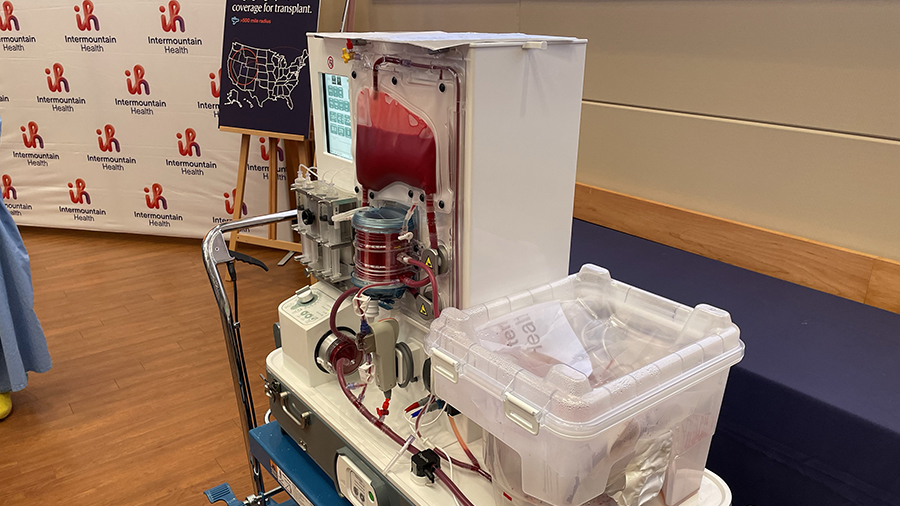MURRAY — Doctors at Intermountain Health are taking advantage of new technology that will change the organ transplant process for patients and doctors.
The new device, called OrganOx, keeps organs functioning outside the body, giving people like 22-year-old Sophie Hansen a chance of receiving an organ sooner.
“I was diagnosed with a rare autoimmune liver disease when I was 3 years old,” Hansen said. “It’s called primary sclerosing cholangitis, or PSC. It damages the liver and the bile ducts in the liver.”
A young Sophie Hansen during her illness in hospital. (Courtesy of Sophie Hansen)
For people like Hansen, receiving an organ transplant helps them continue living despite an incurable disease.
“I was so tired I couldn’t go to school or do anything with my friends and most of the time I just couldn’t do anything,” she said.
But obtaining the necessary organs can take years: Hansen said he waited more than four years before receiving his first transplant.
This year, she learned she needed to undergo another transplant because of her illness: she was diagnosed with recurrent PSC.
“I ended up having my second transplant in January of this year, and because this was my first since my first transplant, I knew it was going to be another long wait,” Hansen said.
But just 33 days later, she received the news that she was eligible for a liver transplant.
“I accepted the organ and was then told that it would be transplanted using Organox,” Hansen said, “and I had complete trust in the team.”
Hansen holds her new liver in a transplant bag. (Courtesy of Sophie Hansen)
Dr. Jean Botha, medical director of Intermountain Health’s abdominal transplant program, said the portable device mimics the human body by pumping drugs, blood and nutrients to the liver.
“The clock is ticking. We need to transplant the organ, get blood and oxygen back into the liver and keep it alive. This technology is working for us,” Botha said.
He says that with OrganOx, they can keep organs alive for up to 20 hours – time that is precious, since it can take hours to deliver an organ to a patient.
“It keeps the organs viable while we transport the patient from five or six hours away or perform complex surgeries that require extra time to prepare the patient,” Botha said. “This avoids the need to perform surgeries in the middle of the night.”
The OrganOx machine helps keep donated organs alive for longer. (Shelby Lofton, KSL TV)
It also gives patients like Hansen time back, allowing them to live their lives again.
“I was only in the hospital for a week and I was back home 10 days after the surgery. I went hiking,” Hansen said.
She currently works in the field as a transplant research coordinator at Intermountain Primary Children’s Hospital and plans to apply to medical school next year.
“I hope that no one ever has to go through this, but we’re in an amazing time with all the advancements in technology and organ use,” Hansen said.
Botha said that while the technology is expensive for the medical industry, its potential to alleviate the organ shortage makes it worth the cost.
“We are now in a time when there is sufficient availability of organs. It’s a whole new landscape and it will be very different,” Botha said.

